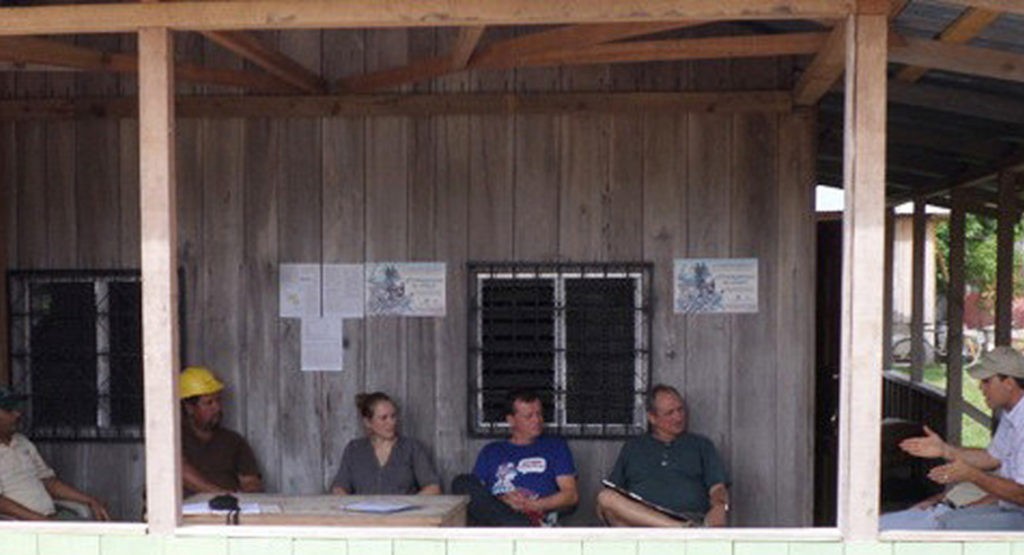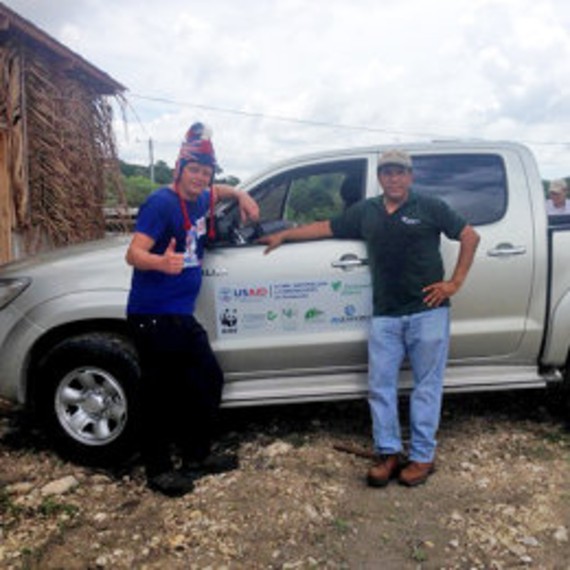Fast Company: Jungle Bird is Racing to Save the World, One Madcap Video Bombing at a Time

EXERPT FROM ARTICLE
Written by Alice Truong
TRACKING TREES
Activism isn’t all talk and gimmicks though. Dudley and his small team in San Francisco are fine tuning an app called TreeTAG to help loggers–the ones operating legally at least–and retailers track down the origin of a tree to the products it ends up in, such as hardwood floors or wooden instruments. (The illegal market is simply too hard to tackle, he says.)
In recent years, federal authorities have raidedLumber Liquidators and Gibson Guitar over violations of a conservation law called the Lacey Act. Gibson was fined $300,000, and the case for Lumber Liquidators is still pending.
Jungle Bird never actually set foot in a jungle until about a month ago, when he traveled to Central America to accompany a logging concession and meet the villagers that cut down, track, and move the trees. (Dudley requested Fast Companywithhold the name of the country, considered one of the most dangerous in the world, for the safety of his team and the concession. “This industry carries with it a lot of risk, not just in the regions we need to work, but also the kind of people the industry/environment attracts,” he explains in an email.)
Two Old Hippies, parent company of Bedell Guitars, acoustic guitar maker Breedlove, andmandolin maker Weber, connected with Dudley through the conservation group Rainforest Alliance. As the wood manager for TreeTAG, Tom McCord invited Dudley to tag along his sourcing trip. An early partner, Two Old Hippies plans to use the app to “trace our product from what we call seed to song,” says McCord. The company has many suppliers throughout North America, including Canada, Alaska, Oregon, Washington, California, Idaho, Michigan, and the New England area, as well as sources in Central America, South America, and parts of Africa. “We are very concerned about how our wood is sourced, and our owner has put forth a mandate that we do not source anything from clear-cut trees, or knowingly source anything from a clear-cut tree,” says McCord. Clear cut refers to the practice of uniformly cutting down most or all trees in a tract of land, as opposed to selectively harvesting them. When possible, the company uses downed or salvaged trees.
Deep in the mighty jungle–prime drug cartel territory, whose presence can be detected with the out-of-place cattle ranches (a means of laundering money)–lay hulking, manual machinery that Dudley guesses are from the 1930s. Contrasting thisarchaic technology was a surprising discovery: Not only were most of the villagers equipped with smartphones, there was even cellular connection in the middle of nowhere.
“It was a great relief that these guys use smartphone apps,” says Dudley. “I think if that wasn’t the case, it’d be slightly more difficult” to implement TreeTAG, which will be released early next year. The app doesn’t require an Internet connection to generate codes to track the trees’ location or log the time and date of when they were cut. The web is only needed when uploading this information to TreeTAG’s servers. Depending on government regulations, the app will also stop generating additional tags after hitting specified quotas or after a certain period of time.
It’s a 21st century update to the system currently in place, which ironically relies on paper certificates. “Whenever there’s a rubber stamp and signature, there could be a bribe,” says Dudley. This is a reality of logging: In Peru, for example, up to 80% of logging exports are estimated to be harvested illegally, according to the World Bank.

